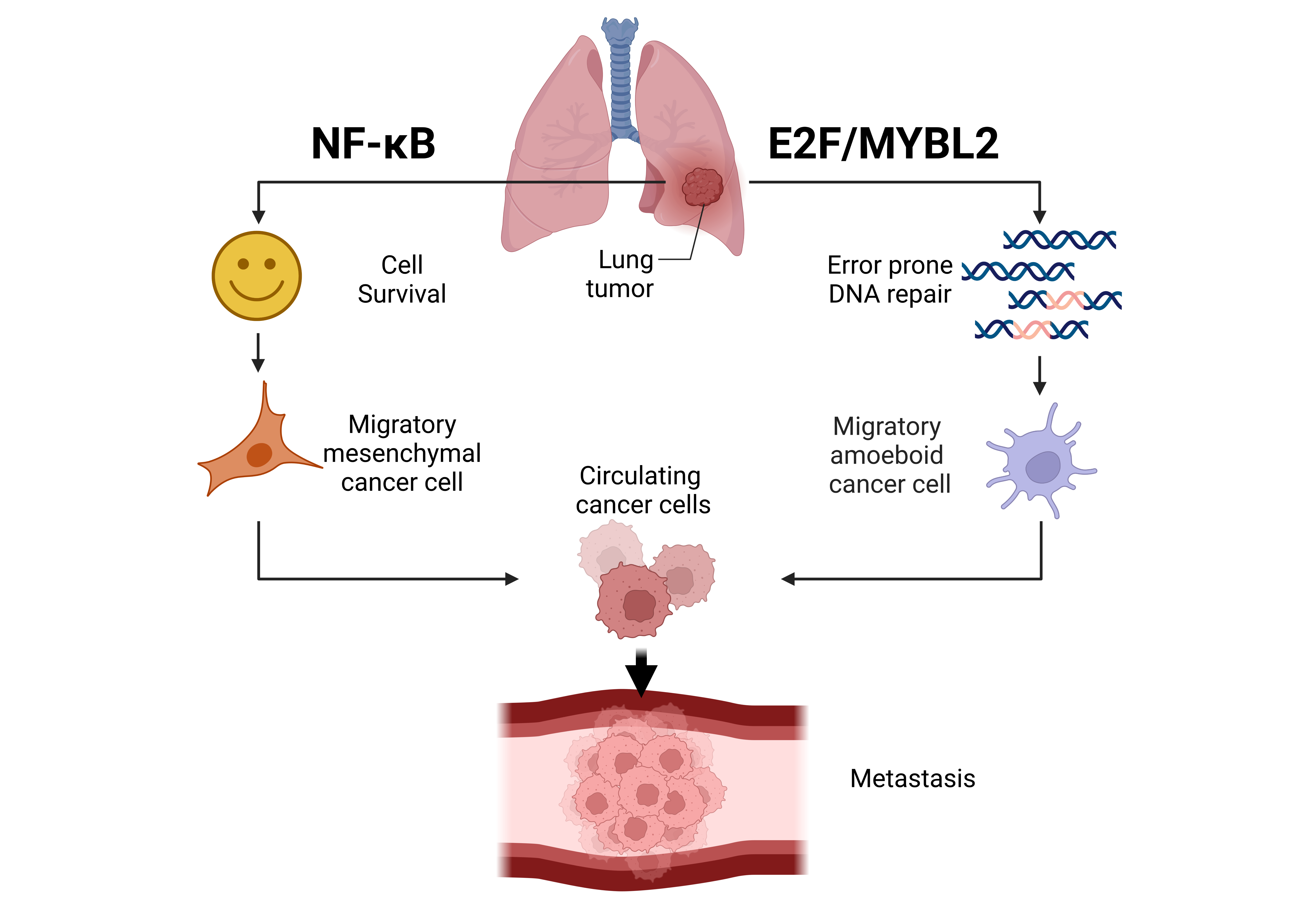Research
NF-kappa B
Our group was among the first to describe that the transcription factor NF-kappa B (nuclear factor-kappa B) promotes pro-tumor processes by its ability to protect cancer cells from cell death programs or apoptosis. The activation of NF-kappa B upregulates gene products that not only protect cancer cells, but effectively enables them to transition to migratory mesenchymal cancer cells with increased rates of metastasis. To better understand how NF-kappa B is regulated, our laboratory identified both co-activator and co-repressor complexes that directly interact with components of NF-kappa B to regulate transcription through changes in chromatin dynamics. In recognition for our contributions to science, this work has been cited thousands of times in peer-reviewed articles across many different fields, including cancer biology, clinical medicine, and aging.
E2F and MYBL2
To identify key transcriptional pathways that predict patients at-risk of developing lung metastasis, our group utilized sequencing data from human and mouse lung adenocarcinomas. Following the loss of the tumor suppressor p53, lung adenocarcinomas upregulate E2F/MYBL2 transcriptional programs. Dysregulated E2F and MYBL2 block death programs, and upregulate error prone DNA repair pathways that enables tumors to acquire gene rearrangements that promote disease progression and therapy resistance. Tumors with elevated E2F/MYBL2 transcriptional programs are enriched in cancer cells exhibiting amoeboid migratory properties with elevated metastatic potential. Since E2F and MYBL2 are considered to be undruggable, we sought to identify co-activator complexes essential for E2F/MYBL2 transcription. Genetic and pharmacological targeting of the E2F/MYBL2 chromatin-remodeling complex, not only suppresses transcription, but sensitizes lung adenocarcinomas to cell death programs. This work demonstrates the utility of identifying and targeting E2F/MYBL2 vulnerability pathways to effectively treat and control the systemic spread of metastatic lung adenocarcinomas.
Transcriptional Programs
Our laboratory studies two different transcriptional programs that drive lung cancer development and metastasis. Left, upregulation of NF-kappa B protects cells from cell death (apoptosis) enabling cancer cells to acquire mesenchymal properties that promote migration and metastasis. Right, elevated E2F/MYBL2 transcriptional programs promote disease progression by upregulating error prone DNA repair pathways that give rise to amoeboid cancer cells with heightened invasion and metastatic potential.

